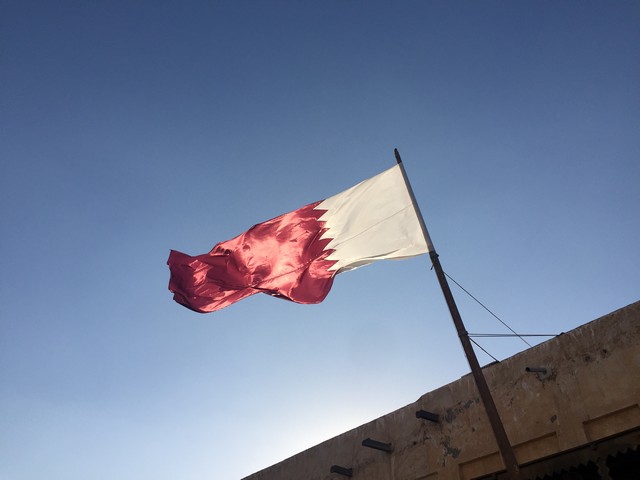By Abdus Sattar Ghazali
Qatari Foreign Minister, Sheikh Mohammed bin Abdulrahman Al Thani, Monday (June 19) ruled out any talks to resolve the current Saudi-Qatari diplomatic crisis unless blockade is lifted.
“Qatar is under blockade, there is no negotiation. They have to lift the blockade to start negotiations,” Sheikh Mohammed bin Abdulrahman Al Thani was quoted by Al Jazeera as saying. “Until now we didn’t see any progress about lifting the blockade, which is the precondition for anything to move forward.”
Sheikh Al Thani’s statement came as the United Arab Emirates Foreign Minister Anwar Gargash said in Paris Sunday that Qatar’s diplomatic isolation could “last years.”
Saudi Arabia, UAE, Bahrain, Egypt and a number of other countries severed diplomatic and economic relations with Qatar on June 5, accusing it of supporting what they called “terrorism” and Iran. Qatar has strenuously rejected the accusations.
The actions Saudi Arabia, UAE, Bahrain and Egypt are taking against Qatar are a “publicity stunt” aimed solely at attacking its image and reputation, a senior Qatari official said in a statement Monday. Sheikh Saif Bin Ahmed Al-Thani, director of Qatar’s Government Communications Office, said: The blockading nations are using terrorism as a publicity stunt.
Tellingly, activists on social media are circulating a legal opinion (fatwa) by late Sheikh Abdul Aziz Bin Baz, in which the former Mufti of Saudi Arabia backed the Muslim Brotherhood. Bin Baz served as the Grand Mufti of Saudi Arabia from 1992 until his death in 1999.
Bin Baz issued his fatwa in his role as chairman of Permanent Committee for Scholarly Research and Iftaa in Saudi Arabia. In Fatwa 6250 he said: “The most righteous Islamic groups and the closest to the teachings of the Prophet are Ahl Al-Sunnah, including Ahl Al-Hadith, Jamaat Ansar Al-Sunna and the Muslim Brotherhood. In general, all of the Islamic groups can be right or wrong at times, so you need to collaborate with them when doing the right thing and avoid the errors they make. I advise all Muslims to cooperate in order to achieve righteousness and piety.”
Qatar must end its support for the Palestinian group Hamas (which rules Gaza) and the Muslim Brotherhood before ties with other Arab Gulf states could be restored, Saudi Arabia’s foreign minister insisted on June 6.
Senior Iranian official visits Qatar
In other developments, the Iranian News Agency (IRNA) reported Monday that a senior Iranian official has visited Doha and met with Qatari officials to discuss the Arab blockade on the Gulf state.
Iranian Foreign Ministry spokesman, Bahram Qasimi, said Assistant Foreign Minister for Arab and African Affairs, Hussein Gabri Ansari, paid a short visit to Qatar where he met with Qatari officials and exchanged views on bilateral relations and international issues.
In an interview with IRNA , Qasimi stressed that Iran always seeks unity and solidarity among the Islamic world and helps establish the foundations of peace and security in the region, adding that this visit comes in continuation of previous consultations with Qatari officials.
Qatar Airways to run 300 daily trips through Iran
Director General of Fars Province Airports Reza Badiei- Fard said last week that Qatar Airways will run 300 additional flights through Iranian airspace daily.
Badeiei-Fard explained that Iran’s airspace was the only option for Qatar Airways flights since the embargo imposed by Saudi Arabia, the UAE, Bahrain and Egypt amid a deepening diplomatic row that saw the four countries cut off sea and air links and diplomatic relations with the Gulf state. Qatar has also re-routed its flights over Turkey and Oman.
The majority of flights from Qatar to North Africa and southern Europe used to pass through Saudi and Egyptian airspace but are now forced to pass through Iranian airspace first then onto Iraq, Jordan and North Africa.
Some 1000 Qatari flights have passed through Iranian airspace in the past 24 hours. Major travel disruptions across the region have been reported yet Badeiei-Fard has said there are no logistical problems with the extra flights thanks to extra structural reforms put in place.
Turkish troops arrived in Qatar
The Qatari defense ministry announced on Sunday the arrival of the first group of Turkish soldiers in the capital, Doha, to take part in joint military exercises. The forces conducted their first training at the Tariq bin Ziyad military base, the ministry said.
The defense ministry said the exercises had been long planned and were part of a mutual agreement aimed at strengthening the defense capabilities of both countries, as well as boosting efforts to combat armed groups and maintaining stability in the region.
Turkey’s parliament on June 7 approved a draft bill allowing its troops to be deployed to a Turkish military base in Qatar, an apparent move to support the Gulf Arab country when it faces diplomatic and trade isolation from Saudi Arabia and few other states.
Turkish 0fficials said the legislation would allow troops to be deployed to a Turkish base in Qatar, amid reports Turkey is also set to offer food and emergency supplies to the country.
Turkey set up a military base in Qatar, its first such installation in the Middle East, as part of an agreement signed in 2014. In 2016 Ahmet Davutoglu, the then Turkish prime minister, visited the base where 150 troops have already been stationed, according to the Turkish daily Hurriyet.
In an interview with Reuters in late 2015, Ahmet Demirok, the then Turkish ambassador to Qatar said 3,000 ground troops would eventually be deployed at the base, planned to serve primarily as a venue for joint training exercises.
Abdus Sattar Ghazali is the Chief Editor of the Journal of America (www.journalofamerica.net)
20 June 2017

